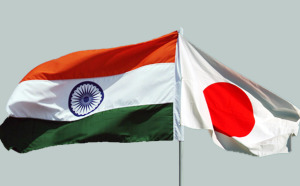
On the eve of Dialogue-2015 Minister Kishida delivered a remarkable speech in the Indian Council of World Affairs, an authoritative non-governmental organization. Several abstracts from this speech attract special attention.
In particular, he marked once again the strategic interconnection of the Indo-Pacific regions and a special role of Japan and India in providing regional freedom and prosperity. In this regard, Minister Kishida reminded the words of Prime Minister Narendra Modi about “a special partnership both countries enjoy that will determine the direction of Asia in the 21st century”. Prime Minister Modi said them during his visit to Japan in September 2014.
The context of Minister Kishida’s speech indicates that the said special significance of India-Japan partnership should in the first place manifest itself in parrying the factor of security vulnerabilities in the Indo-Pacific region.
He identified the South China Sea (SCS) as a connection-link of both oceanic areas. It is no coincidence that SCS was mentioned in the speech of Japanese Minister of Foreign Affairs, because in recent years it is here that the interests of China on the one hand and the interests of the USA, Japan and India on the other hand clearly collide.
The important component of closer cooperation in the sphere of safety control according to Minister Kishida is participation of Japan in annual (initially US-Indian) naval exercise called Malabar. Last year the region of this exercise was for the first time removed from the Bay of Bengal to the western part of the Pacific Ocean water area, that is, to the place where the confrontation of China with its three main geopolitical opponents becomes more evident.
During the negotiations of Minister Kishida with his Indian colleague Sushma Swaraj they confirmed the determination of both countries to strengthen the trilateral alliance (together with the United States) “amid the rise of an increasingly assertive China in Asia”.
In his interview given to the popular Indian newspaper Times of India, Minister Kishida welcomed the new economy course of Prime Minister Modi. The basis of Mr. Modi’s economic innovation is the process of drastic decrease of limits for foreign investments and companies under the slogan “Come, Make in India”. Obviously, Japan sees itself as one of the main addressees of this slogan.
During his conversation with the Indian Prime Minister, actually for the first time at the official level, Fumio Kishida answered positively to the unequivocal appeal of India to Japan to participate in the development of logistic and transport infrastructure in northwest regions of the country, bordering China.
In this regard, it is necessary to note that the mentioned infrastructure should become one of the main elements in the complex of measures for solving the problem of defense capacity increase of the country along the Line of Actual Control with China, which is 4 thousand kilometers long. The Line still does not have the status of official border that should divide these two great Asian powers. Forming of the corps of mountain troops up to 100 thousand strong (presumably by 2020) will become an equally important measure.
Another significant (and quite unexpected) political event in the Indo-Pacific area was a visit of US President Barack Obama to Delhi, which took place on January 24-26 of this year. This visit was remarkable due to the fact that both leaders already had an opportunity to thoroughly discuss all issues of bilateral relations (at the end of September 2014 in New York and in November of the same year in Brisbane).
According to one of the aides in the US Administration, the personal invitation of Narendra Modi to Barack Obama to visit India on the occasion of the national holiday – Republic Day – took the US side “by some surprise”. It might as well be added that none of the leaders of other world great powers received such invitation.
The Indian capital had to urgently prepare to the visit of the distinguished guest. New York Times correspondent is giving a glowing description of special “sanitizing” of several blocks in Delhi. The major problem was the necessity to get rid of swarms of beggars and cows from the government routes for three days. As for hundreds of rosy-bottomed monkeys inhabiting the neighborhood of the presidential palace, men with slingshots were barking in an effort to frighten them away.
It is quite difficult to speak of the real contents of conversation between the leaders of India and the USA, because the media only described it with a (becoming quite standard) set of words, such as “trade”, “environment”, “fighting terrorism”, “security”. Visit of President Obama to Delhi had to be shortened due to the necessity of his presence at the procedure of accession to throne of the new king of Saudi Arabia, a country not less important for Washington than India.
The unplanned meeting of India and US leaders should rather be viewed as an ordinary display of the same “specialty”, but existing within the framework of US-India relations. It is quite difficult to understand the necessity of such display and which of the recent events in the Indo-Pacific area provoked it.
One should observe the coming sequence of events, which will take place in 2015. The most significant among them will be “words and deeds” of the major world players during the forthcoming events on the occasion of the 70th anniversary of the end of the Second World War.
Vladimir Terekhov, expert on the Asia-Pacific region, specially for the online magazine “New Eastern Outlook”.
